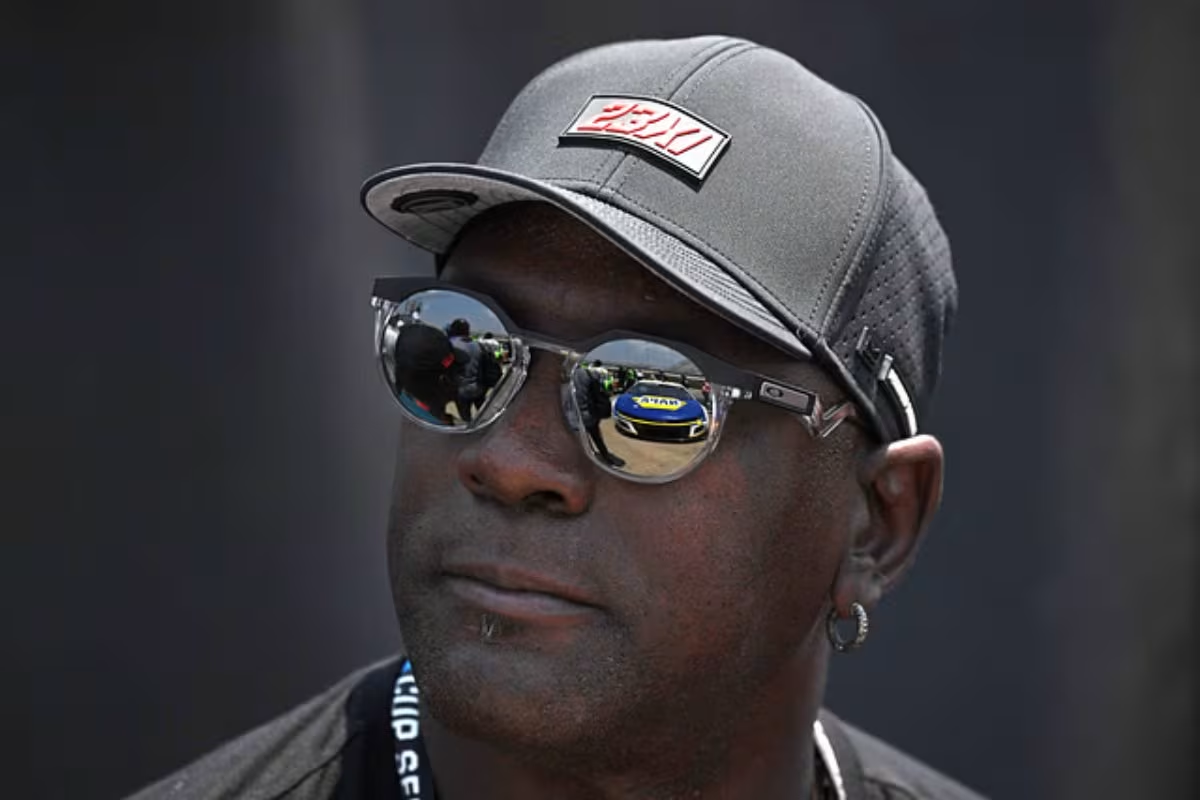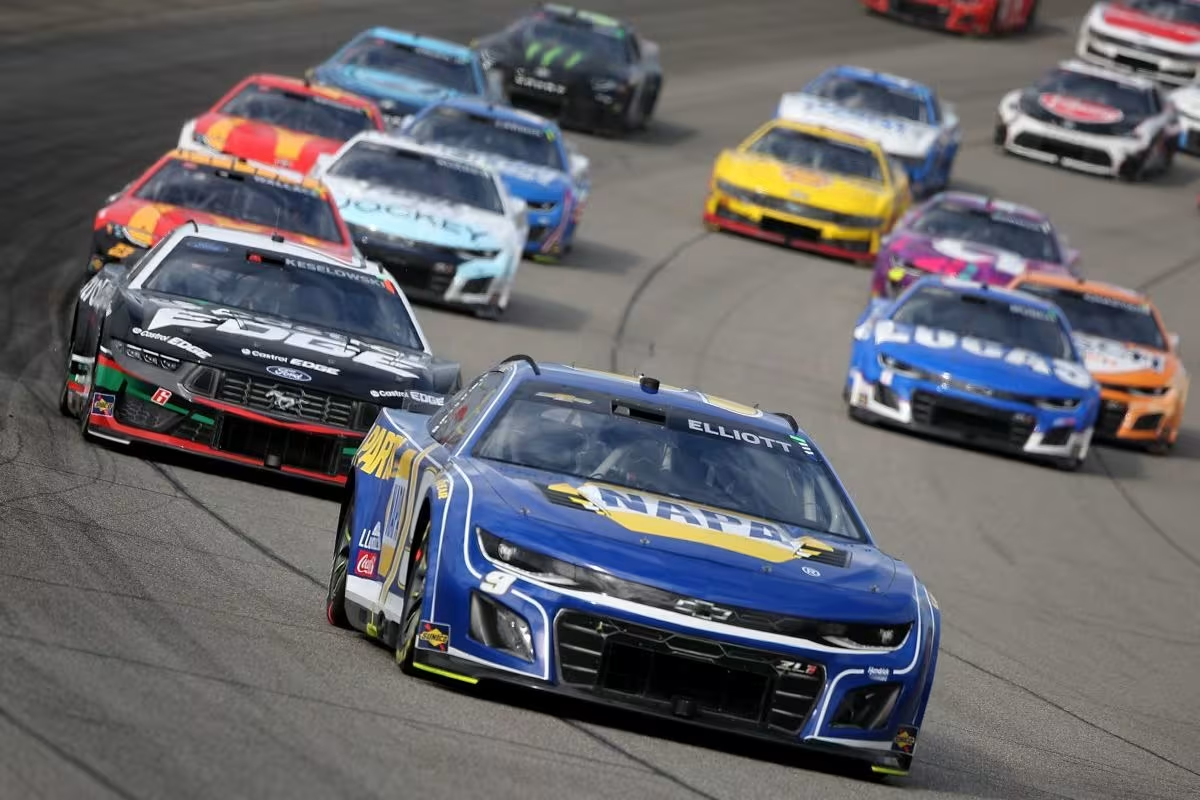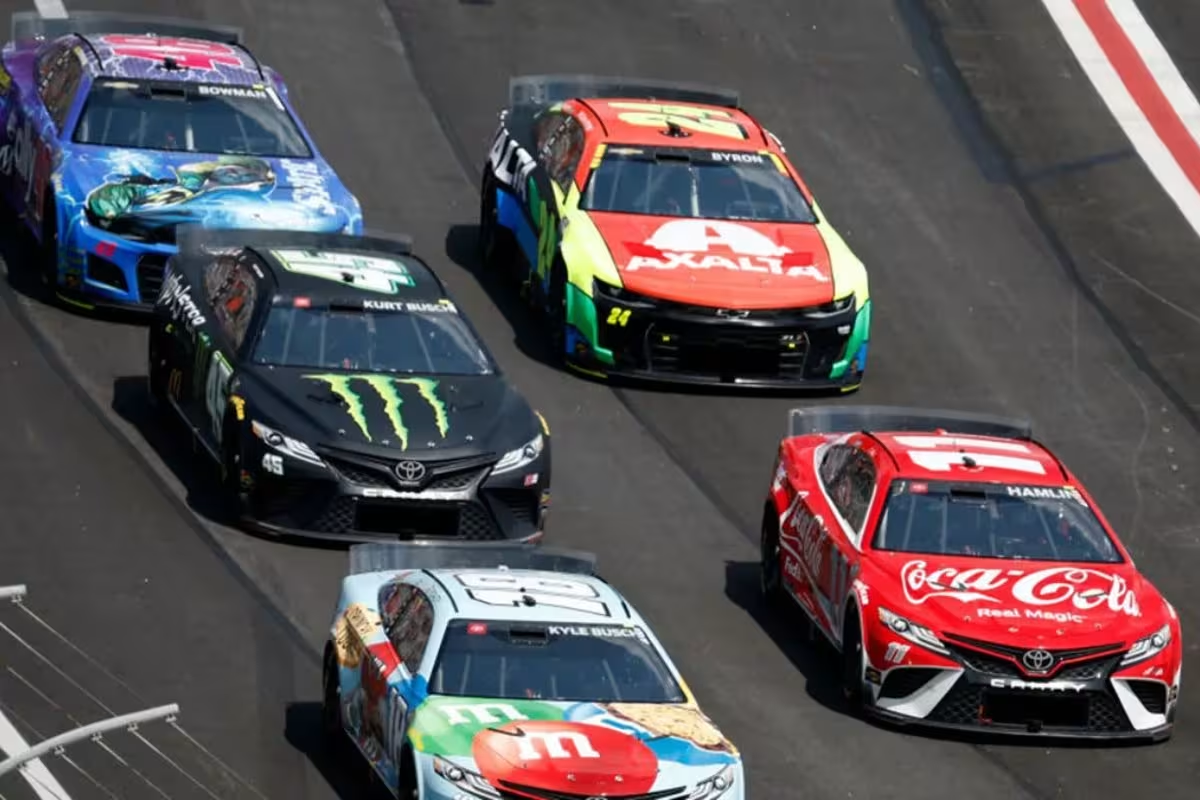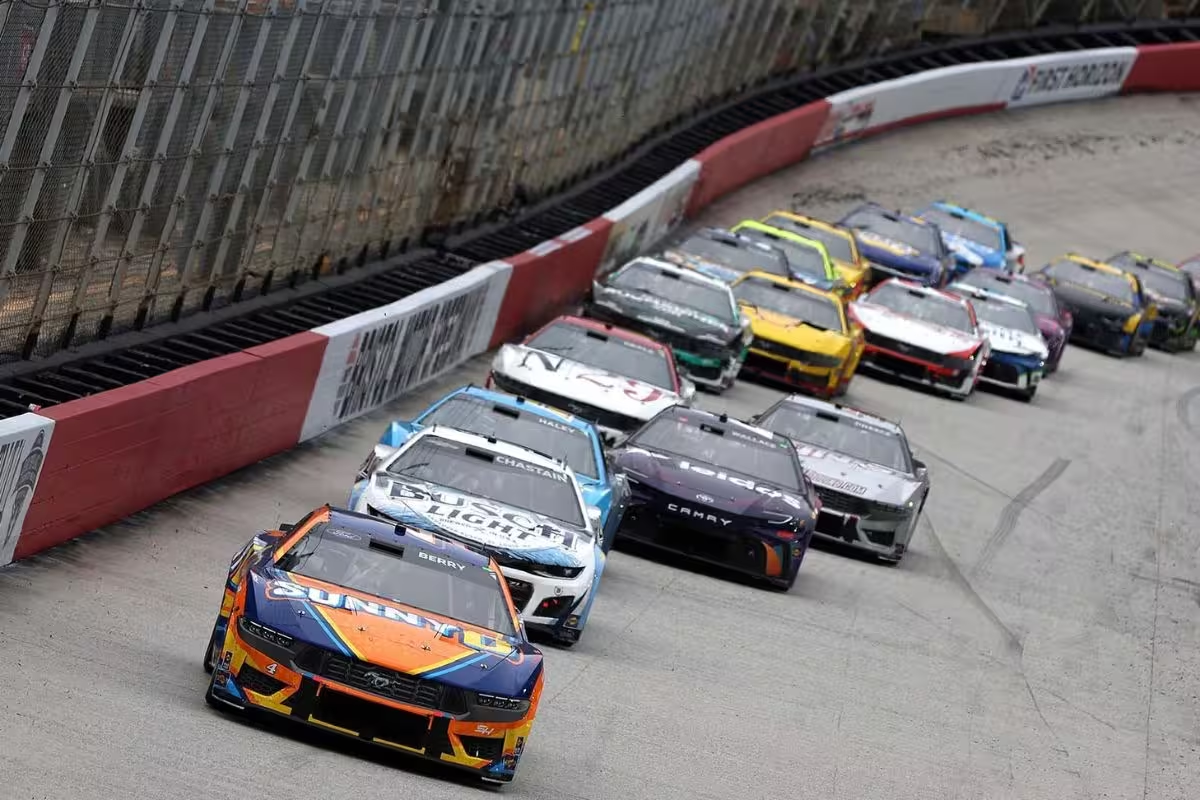Michael Jordan’s NASCAR ambitions crushed by NASCAR’s recent decision to reduce charters, a move that has thrown many teams into disarray. Michael Jordan, who is involved in ongoing litigation, accuses NASCAR of monopolistic practices that threaten the survival of smaller teams. With only 32 charters available, the competitive field is shifting, making it harder for less resourceful teams to keep up. The added financial strain from the costly Next Gen car worsens the situation. This strategy has created divisions among teams, prompting serious questions about the future of the sport and its competitive dynamics.
Key Highlights
- Michael Jordan and two teams filed a lawsuit against NASCAR, claiming monopolistic practices from the charter system harm smaller teams.
- NASCAR’s decision to operate with only 32 charters has raised concerns about the viability of existing teams.
- The lawsuit underscores a critical turning point in competition dynamics within NASCAR, emphasizing inequities in the charter system.
- Financial incentives linked to the charter system have created divisions among teams, impacting overall competitiveness.
- Drivers continue to prioritize competition despite increasing financial pressures from the Next Gen car and the charter system’s costs.
Overview of the Lawsuit
The lawsuit filed by Michael Jordan and two Cup Series teams against NASCAR represents a remarkable challenge to the established norms of the racing circuit, emphasizing tensions within the sport’s competitive framework. At its core, the legal action accuses NASCAR of engaging in monopolistic practices that weaken the viability of smaller teams, effectively positioning the organization as a “bully” within the sport. The plaintiffs argue that the current charter system, which grants certain teams exclusive rights and privileges, creates an uneven playing field, exacerbating existing disparities among teams.
Jordan’s initiative is particularly noteworthy given that 13 other race teams have opted not to join this legal challenge, indicating a divide within the racing community. This minority stance may reflect apprehension regarding potential repercussions or a belief in the status quo’s sustainability.
Nonetheless, the lawsuit’s bold assertion that “bullies will continue to impose their will” until overt resistance is illustrated emphasizes a critical turning point for the teams involved.
While the primary objective appears to be dismantling the charter system, the legal tactics have inadvertently placed the plaintiffs in a precarious position. NASCAR has begun leveraging the same system to counteract these challenges, further isolating Jordan and his allies from the larger Cup Series garage.
NASCAR’s Response and Strategy
Faced with the mounting legal challenge from Michael Jordan and his allies, NASCAR has tactically pivoted to reinforce its position within the competitive landscape. In response to persistent demands from the Race Team Alliance for permanent charters and increased revenue sharing, NASCAR has taken decisive steps to assert its authority and counteract perceived threats to its financial framework.
NASCAR’s strategy includes planning for a season with only 32 charters, effectively rendering the existing charters owned by 23XI Racing and Front Row Motorsports (FRM) obsolete. This calculated move serves to weaken the expansion ambitions of teams like Jordan’s, while simultaneously reinforcing NASCAR’s contractual obligations to other charter teams.
By framing the lawsuit as a meritless attempt to renegotiate terms, NASCAR aims to delegitimize the claims made by Jordan, Denny Hamlin, and Bob Jenkins. The organization’s leadership, including Jim France, has articulated a clear narrative that positions the legal action as an extortionate tactic rather than a legitimate pursuit of equity in the sport.
In its filing in response to 23XI/FRM hopes for expedited discovery, NASCAR states "NASCAR has taken steps, consistent with its contractual obligations to other Charter Teams, to plan for a season with only 32 Charters."
— Bob Pockrass (@bobpockrass) October 17, 2024
“NASCAR is working on reallocating funds that Plaintiffs would have received to increase prize money and other special awards for the 2025 season for the benefit of teams that timely executed 2025 Charters, as well as Open teams who can compete to win the increased prize money.” – Bob Pockrass
This response not only protects NASCAR’s revenue model but also sends a strong message to other teams considering similar challenges. As the landscape shifts, NASCAR’s commitment to maintaining a controlled charter system may ultimately dictate the balance of power within the sport, compelling teams to reassess their strategies in light of the new reality.
Further Developments in the Case
As the legal battle unfolds, Michael Jordan and his co-plaintiffs find themselves steering through a complex landscape shaped by NASCAR’s recent actions. The introduction of a stringent six-hour time window for teams to sign the new charter deal has left many, including Jordan’s 23XI Racing, at a disadvantage.
With only 13 teams, excluding Jordan’s and Front Row Motorsports (FRM), opting into this arrangement, NASCAR’s management appears to be tactically aligning its resources to favor compliant teams.
Jim France’s initiative to reallocate funds originally intended for the plaintiffs reinforces this narrative. By redirecting these financial assets towards increasing prize money and special awards for the 2025 season, NASCAR is attempting to incentivize timely participation in the charter system.
This move not only solidifies divisions among the teams but also places immense strain on Jordan and his allies to adapt quickly, should they wish to remain competitive.
Moreover, the broader implications of this development extend beyond mere financial concerns. While NASCAR’s monetary strategies may create rifts, the sentiments from drivers suggest a deeper ethos within the sport, where fellowship and competition hold considerable value.
Drivers’ Perspectives on Competition and Revenue
Competition within the NASCAR landscape remains a driving force for many drivers, often overshadowing the financial complexities that accompany the sport. Recent trends demonstrate a dichotomy between the pursuit of competitive excellence and the urgent need for financial viability among teams. The NASCAR lawsuit highlights decreasing revenue as a central concern, reflecting an environment where independent contractors expend substantial resources—both time and money—merely to participate in the racing circuit.
Historically, the absence of a charter system left teams vulnerable, as they were forced to secure sponsorships while simultaneously competing for race entries. The implementation of charters in 2016 provided some stability, but new financial burdens have emerged, with some teams reportedly spending upwards of $18 million annually to field a competitive car.
The introduction of the Next Gen car has exacerbated cost pressures, further complicating the fiscal landscape for teams.
Despite these financial strains, driver sentiment remains steadfast. Two-time Cup champion Joey Logano articulates a shared ethos among competitors, stating that the essence of racing transcends monetary incentives. His Team Penske teammate, Austin Cindric, reinforces this notion, asserting that the spirit of competition drives their performance irrespective of financial stakes.
“Everyone here will race the same no matter what money is on the line. You could put us in go-karts with no money at the end and we’d still race as hard as we could, trying to win, trying to beat the other guys.” – Joey Logano
“Money makes the world go around. But that’s not what drives us to race hard. It’s the competition.” – Austin Cindric
Christopher Bell from Joe Gibbs Racing echoes this sentiment, emphasizing that their commitment to racing hard is unyielding, regardless of the economic climate.
“No matter what’s on the line, we’re all getting paid to race as hard as we can. It won’t have any effect on my effort in the race car.” – Christopher Bell
News in Brief: Michael Jordan’s NASCAR Ambitions Crushed
In view of recent developments, the dismissal of charters by NASCAR has considerable implications for team stability and competition. The ensuing lawsuit highlights the tensions within the sport, revealing concerns over revenue distribution and competitive balance.
NASCAR’s tactical response will likely be crucial in shaping its future direction and maintaining stakeholder confidence. As drivers express apprehension regarding the impact on competition, the evolving dynamics necessitate careful monitoring to assess long-term ramifications for the sport.




